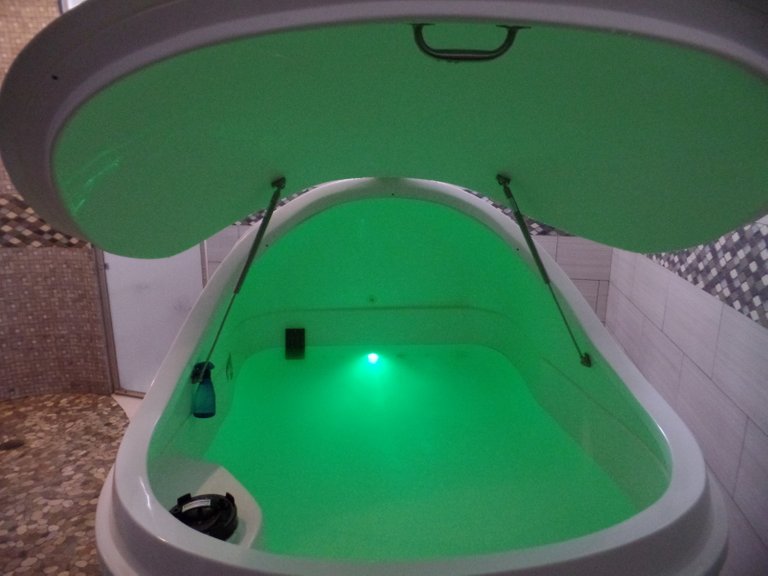Floating: Reduce Stress, Boost Your Creativity
It was back in the summer of 2015 when I first heard about sensory deprivation tanks. Huh, sensory what?
If it sounds a little, well—out there—it is; invented in 1954 by Dr. John Lilly, a man who later became renowned for his research on dolphin intelligence before spiraling into a ketamine addiction and subsequent psychosis, designed the original prototype for what would later become our modern day floatation tank: a pod or chamber filled with buoyant, body-temperature water, enclosed in complete darkness and silence. Once in the tank, one loses sense of the constraints and boundaries of his or her body, ensconced in the gentle comfort of velvet blackness, free to explore one's mind from a new perspective.
While it may sound frightening to those with claustrophobia, most sensitive floaters report that they experience no sense of confinement in the tank, and instead feel a deep sense of peace and safety.

So, why should you give floating a chance?
Research has shown that floating in a sensory deprivation tank reduces cortisol and adrenaline levels—hormones produced by the body in response to stress. Stress, of course, leads to a wide variety of ailments and generally reduced well-being, especially psychologically. Not only does floating help reduce stress and its biochemical byproducts, but recent studies have revealed that while in a tank, your brain enters the theta state, a frequency usually associated with meditation, dreaming and deep relaxation. It's in this elusive state that your mind is fully free to let go and relax, or alternatively, seek out other realms of consciousness previously inaccessible. Many users report experiencing visions, hallucinations and profound realizations of personal insight while floating.
In essence, floating facilitates trancelike tranquility, stress reduction, and helps boost creativity.
As an added benefit, the epsom salts used to increase buoyancy help reduce inflammation and muscle soreness. Score!
Floating is quickly emerging on the forefront of alternative therapies and is being studied for its potential benefits in improving the symptoms of PTSD, eating disorders, depression and exercise-related injuries.
Here's an engaging video documenting the PTSD studies.
As for myself, in the past year I've had the pleasure of floating on 20 separate occasions ranging anywhere from one to four hours long, and someday I hope to own a tank of my own. Each session has been different, but none no less revitalizing and refreshing than the last. Every time I step out of the tank and back onto the streets of my hometown, I'm marked by a renewed sense of appreciation, gratitude and optimism for life and my ability to creatively tackle personal challenges and goals alike. Floating helps me be my best self.
Floating, once an esoteric discipline known only by psychonautic rogues, is now becoming a popular modality for healing by those seeking respite from the stress of daily life. Fortunately, there's a great database available online of float centers near you.
Ready to float? Check it out: http://floatationlocations.com/map/
Have you tried floating before? Comment below and share your experiences!
#float #sensorydeprivation #health #wellness #science #steemit
Awesome writeup! I've got a couple vertical style tanks at my home, they are amazing presence generators, stress reducers, and great at awakening the mind :)
Shot you an Upvote :)Nice @runaway-psyche
Upvoted
Likewise, much appreciated!